AIBOBOU Flags Transparency Issues in Bank of Baroda’s Promotion and Appraisal System
The All India Bank of Baroda Officers’ Union has raised concerns over Bank of Baroda’s new promotion and appraisal system, calling it opaque and unfair. The union says hidden grading methods, undisclosed algorithms and lack of transparency may harm officers’ career growth. It has urged the bank to restore a fair and accountable evaluation process.

Author: Meera
Published: 3 hours ago
The All India Bank of Baroda Officers’ Union (AIBOBOU) has issued a circular dated November 16, 2025 raising objections to changes introduced in Bank of Baroda’s (BoB) promotion policy, GEMS appraisal system and career progression structure. According to the union, these reforms may reduce transparency and affect officers’ ability to understand or challenge their evaluations.
Promotion Process Becoming Non-Transparent
According to the AIBOBOU’s circular, the promotion system has become secretive, as the bank no longer publishes marks, cut-offs or merit lists. Only officers declared successful can view their scores, while those not selected are denied access to their own performance data. The union states that this lack of disclosure diminishes trust and weakens the credibility of the promotion process.
Advertisement
.
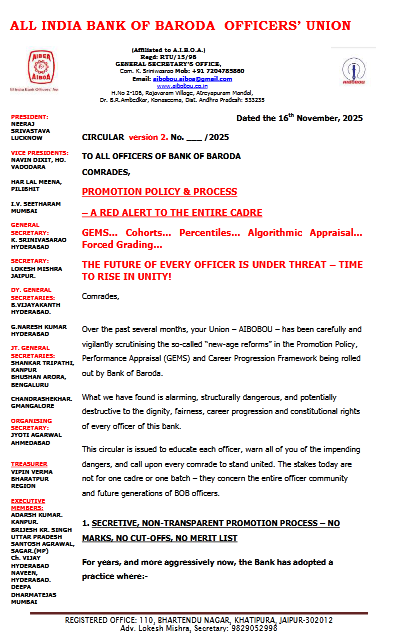
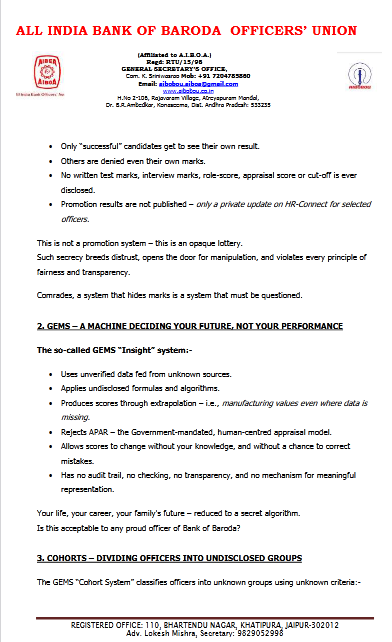
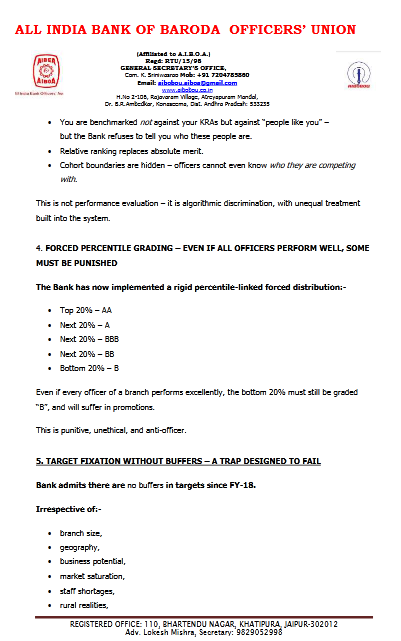
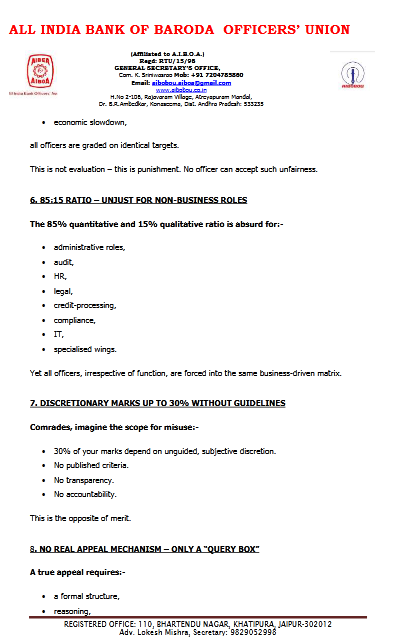
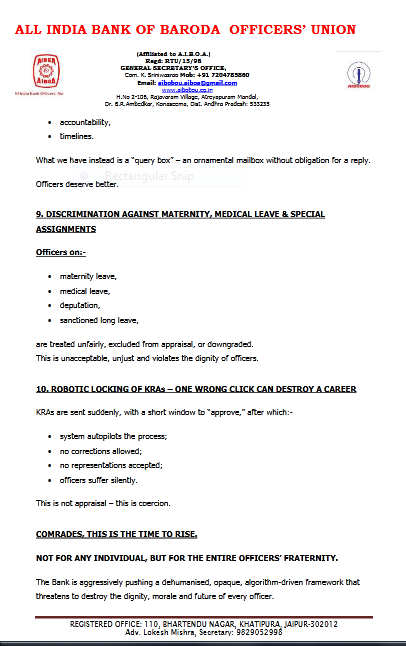
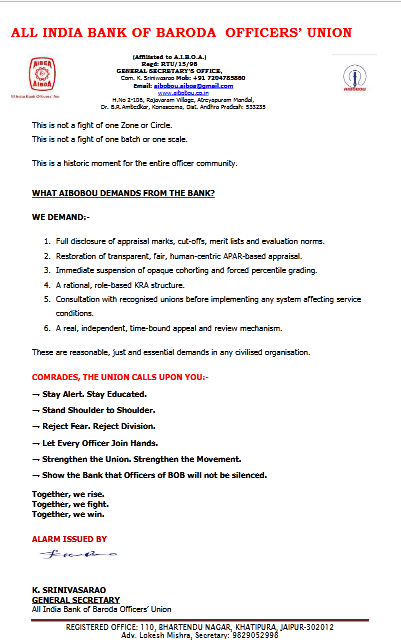
Image:Circular of AIBOBOU
Courtesy: K. Srinivasarao, General Secretary, AIBOBOU
Concerns Over Algorithm-Driven GEMS Appraisal
The union highlights several concerns regarding the GEMS appraisal framework. It states that the system functions using undisclosed algorithms, unverified data sources, and score variations that officers cannot audit or verify. The creation of hidden “cohorts” — groups formed without officers’ knowledge — and the use of a fixed percentile-based grading pattern are also highlighted as key issues.
According to the union, officers are forcibly distributed into predetermined rating categories regardless of their actual performance. The distribution is as follows: Top 20% – AA, Next 20% – A, Next 20% – BBB, Next 20% – BB, and the Last 20% – B. The union describes this structure as inherently unfair.
Business Targets Without Buffers
The circular points out that business targets do not contain any performance buffers. The union notes that since FY18, officers have been given identical targets without considering regional constraints, staff shortages, rural limitations or varying business potential.
85:15 Ratio Unsuited for Non-Business Roles
The union criticises the 85:15 Business-to-Quality scoring ratio, stating that it is unsuitable for non-business roles such as HR, IT, audit, legal, compliance and other administrative functions.
Discretionary Marks Without Guidelines
AIBOBOU also highlights concerns over the usage of up to 30% discretionary marks. The circular states that the absence of defined criteria or published guidelines creates scope for interpretation and inconsistency.
Officers on Leave or Deputation at a Disadvantage
The union states that officers on maternity leave, medical leave, deputation or long sanctioned leave have been placed at a disadvantage. It highlights instances where such officers are excluded from scoring or downgraded due to circumstances beyond their control.
Union’s Demand for Reforms
AIBOBOU has demanded full transparency in evaluations, reinstatement of APAR-based appraisal, discontinuation of forced grading and hidden cohorting, and introduction of a proper appeal mechanism. The circular urges unity among officers as discussions continue.
Advertisement
No comments yet.
